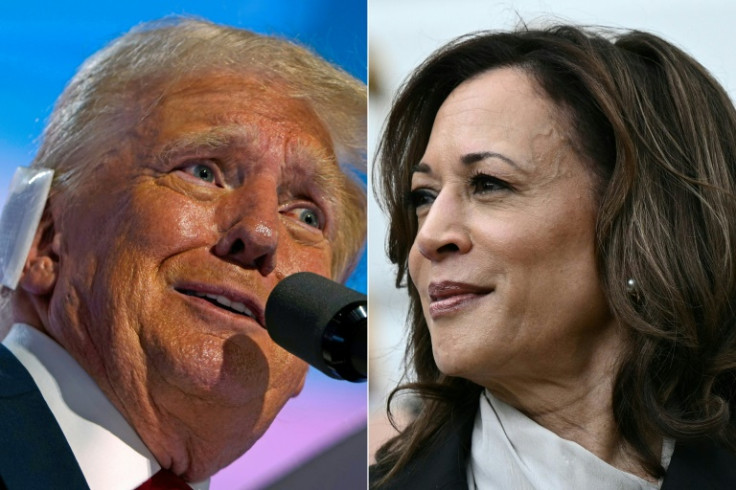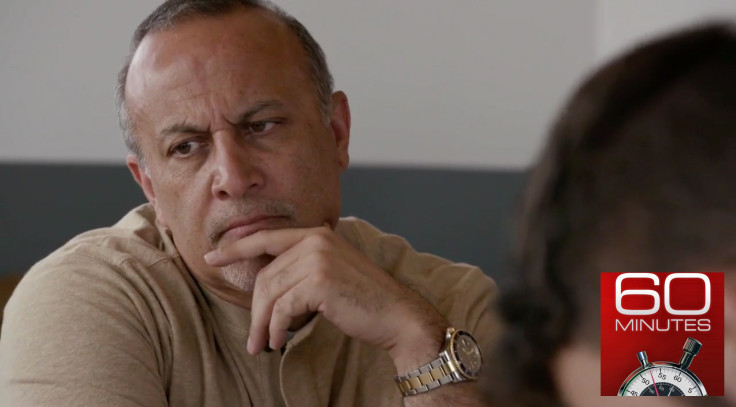
The path to win the Democratic nomination is becoming clearer by the day for Vice President Kamala Harris as she secures the delegate support to step up to the party's ticket.
However, the road to the White House has not fundamentally changed overnight, as recent polls show Harris in a similar position to President Joe Biden just before his decisionto drop out of the race.
Regardless, Democrats have undoubtedly been injected with a shot of energy after weeks of intense internal battles over the incumbent's fitness and ability to continue in the campaign.
As the race draws close, Harris will seek to increase her support among certain demographics, particularly Latinos, which polls show have been switching to the GOP over the past years.
But will she be able to achieve this in just four months? And if so, how will Latinos, a demographic that has been a top focus during this campaign cycle, continue to shape up the results and data of the upcoming election?
To help answer these questions, The Latin Times sat down with Mike Madrid, co-founder of The Lincoln Project and who served as the press secretary for the California Assembly Republican leader as the political director for the California Republican Party, and as senior adviser to both Democrats and Republicans.
No longer associated with the GOP— particularly since Trump's election to the White House— Madrid has spent his time reflecting on the Latino population in the U.S., and how both parties have increasingly failed to capture their support. These issues are further delved into his recently released book "The Latino Century: How America's Largest Minority is Transforming Democracy," where he continues to explore American hyper-partisanship, explosive tribalism and social progress in the Latino community.
This interview has been edited for length and clarity.

Latin Times: Last time we talked, we discussed your now published book. We talked about how Latinos were likely to shape the upcoming American elections and the upcoming years of American democracy. Now, with all the recent developments, how, if at all, do you think this has changed?
Mike Madrid: With all of the historic developments that have happened over the course of the past 25 days or so—starting with the debacle of a debate— the actual change in voting behavior, the actual polling has not moved very much, if at all. And we have to really kind of isolate the emotional "polar-coaster", as we call it, with the polling being up and down, from the actual real data. The roller coaster is when you feel really elated one day with one development, and then completely deflated the next with the next development. But we have to recognize that voter opinion has really not changed measurably in one degree or another in a way that would fundamentally change the trajectory of the race. So again, I tried to be as level headed and objective as I can, because that's what I do for a living. Very little movement has actually been experienced.
LT: There had been a lot of talks about how the Biden campaign had been running into serious issues at winning the Latino vote. Is this an issue that the Harris campaign will also experience?
MM: That's a great question. If she can fix the generational problem that Biden had, then she's gonna get a lot of Latinos back because Latinos are younger. And that's the best way to approach, rather than trying to focus on a racial or ethnic appeal. You have to focus on it as a generational appeal. And I think she'll see some successes there.
Now, having said that, I don't think you're gonna see wild movement either. I think we've been watching this 10 year progression of Latinos moving away from the Democratic Party. I think Harris can stem that, slow that, but I don't think she can reverse it. I don't even know if she can stop it or think she can slow it. But we'll see. I mean, the Biden campaign, or the Harris campaign now, has been putting out stuff showing these wild numbers about how well she's doing. We have to keep in mind that there's no good data right now. You can't poll in an environment 48 hours before this big announcement and get an accurate reflection of public opinion. It's going to have to settle. But I do think that there's a new opening and a new start that they have with Latino voters that they were failing on completely with it over the course of Biden's efforts.
LT: The focus now is also turning into her potential VP pick. You've mentioned before that Mark Kelly would be a great choice for her campaign. But with all the names being thrown around, which candidate do you think has what it takes to draw in these uncertain voters?
MM: I think Josh Shapiro in Pennsylvania would be a strong pick. Roy Cooper in North Carolina would be a great pick, even Andy Beshear from Kentucky. Mark Kelly, of course. All of these are all valid, and they're not going to really change the trajectory of the race, they might give you a small advantage in their respective states.
I think Mark Kelly would be the best pick, but there's no bad pick. Contrast that with the Republicans, JD Vance was a bad pick. He doesn't bring anything. In fact, he doubles down on the worst elements of the limitations of your campaign. Kamala has the opportunity to be expansive in her thinking, not regressive. And that's the way I think she should be thinking about it.
LT: Speaking of JD Vance, how do you think his role in the Trump campaign will change? Is it any different now that Kamala is at the helm of the Democratic Party?
MM: Republicans are seeing the same data that I'm seeing. Like I said, a Vice Presidential pick might have some marginal benefits, especially with a home state. Ohio just didn't make sense for that reason either. There were better choices, but the decision was made. It's not like they're gonna dump him or anything. And it's not like they're gonna hide him. They've got what they've got, they're gonna run the strategy that they've got. And I think the best way to look at it is more than it's a missed opportunity, where they have the opportunity to be expansive, and to try to bring more people into the coalition. They chose not to; it's a very conservative move. And I think that it was a mistake, but it's certainly not a fatal mistake. Like in this environment, you can't really make fatal mistakes. I mean, it guess Biden's campaign kind of died at the debate. But even that didn't change the fundamentals of the race going forward.
LT: Now that Kamala is the presumptive Democratic nominee, Republicans have already started their counter-attacks, particularly focusing on the message of "border czar." Will this be a successful message for Republicans? How can the Harris campaign fight these allegations?
MM: I think this is going to be her greatest weakness. This is going to be very impactful. Donald Trump is trusted on border issues more than Biden and Harris by a wide measure, the widest measure. And the more they can talk about and expose those weaknesses, the better, and there's a real weaknesses to be exposed. So yes, Democrats are going to have to find a solution. That is why I think Mark Kelly is the best choice. He is the only Democrat who has been really tough on the border and moved towards a position of kind of common sense, probably because he's in a border state. And he has done very well with Latino voters as a Democrat. So if he wants to both go to where voters, Latino voters and American voters are at and do very well with Latino voters. No one's done that better than Mark Kelly. So it's another reason to be expansive in your thinking.
But Kamala has real weaknesses on immigration, and the Republicans should be exploiting it. And Kamala Harris needs to be figuring out ways to mitigate that exposure. Because yeah, the "border czar" title is unfair, but the reality is she was there, she was tasked with it as her main responsibility, at least early on in the administration, of working to address and find this. And it was, it was the worst time at the border in 18 years, almost 20 years. So she's got to own that she can't just nod or blame Joe Biden or whatever she's got to blame. She's going to have to own it and come up with an appropriate solution to end it. And that's a moderate pick. And that's a proven pick, which is Kelly.
LT: Is this possible to do in just four months?
MM: Yeah, absolutely. But you got to lean into it and drive it. And under the command of the narrative, that's the one thing I was really critical of, the Biden administration for not doing is, they needed to drive the narrative more than they were. The good news is immigration is down, they have begun to address it, illegal immigration is down. But they've got to be less afraid of owning this and less afraid of losing Latino voters, because when Biden signed the executive action on asylum shutting down the border, essentially 69% of Latinos supported it, compared to 70% of all Americans. So there's no discernible difference anymore, in large part because of what you know, I wrote my book and what I've shared with you in the past, which is, this is not your grandparents Latino vote. You know, it's a different Latino voter. And their views, our views are much more aligned with the broader American electorate than at any point in our history.
LT: Moving forward, there's so much tension regarding this contest, how do you think that the campaigns and eventual election will continue to play out?
MM: Boy, what a great question. I mean, if you'd have asked me that a month ago, I never would have predicted any one of the five historic things that happened. So I don't know. But what I will say is this, all the data is pointing to a very close election, regardless of what happens. And I've been saying it for a long time. And I think this month has proven it out, there's at least three, four or five things that have blown up that should have dramatically moved voters out of their partisan foxholes, but have not. There's just no undecided voters that are moving, some got a little bit weak in terms of their intensity, some get very strong in terms of their intensity, depending on what's happening. But in terms of actual movement, we're just not seeing it. So this is going to come down to a really strong GOTV [Get Out The Vote] operation when both parties are struggling with what their own voter base is.
© 2025 Latin Times. All rights reserved. Do not reproduce without permission.




